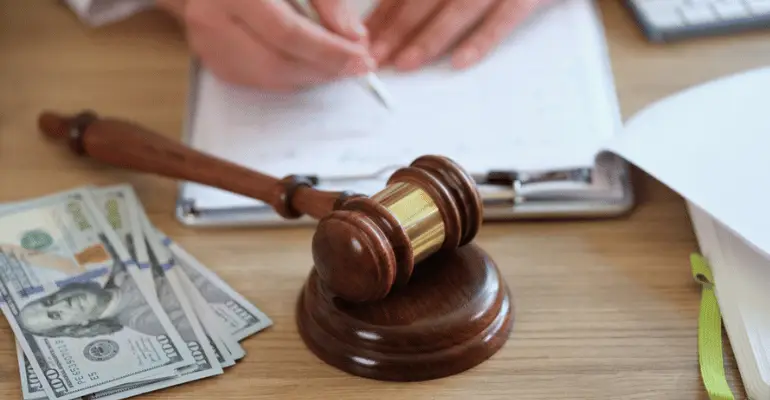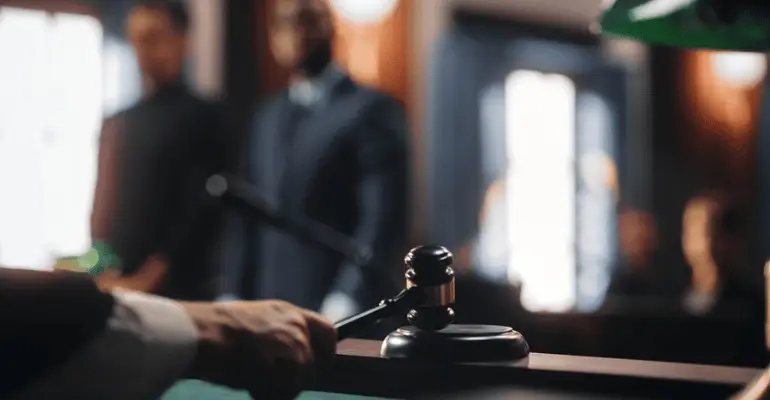Wrongful Termination And Unemployment Benefits: What You Need To Know

Can You Collect Unemployment If You Get Fired?
When employees get fired, it can be a confusing time. Unemployment benefits are there to provide financial assistance to those who qualify, but can you collect unemployment if you get fired? The short answer is: it depends on the circumstances.
Since Florida is an “at-will” state, employers can fire people for all types of reasons or even no reason at all. This is within their rights as long as it is not against Florida statutes or the product of workplace discrimination or other actions protected by federal law. That being said, a frequent reason that employers will fire people is because of misconduct.
If your employer fired you for what they claimed was misconduct, you still might be able to collect unemployment benefits and possibly sue them for wrongful termination. After all, misconduct is not always easily defined; it is often a matter of interpretation and degree. This is particularly true under Florida’s amended Unemployment Compensation Law, which redefined employee misconduct in 2011.
MISCONDUCT AND UNEMPLOYMENT BENEFITS
If you feel that you have been wrongfully terminated, you should consider contacting an unemployment law attorney before seeking unemployment benefits.
Wrongful termination may result from different types of actions, including:
- Workers’ Compensation Retaliation
- Hostile Work Environments
- Sexual Harassment
- Age Discrimination
- Race Discrimination
- Wage and Hour Disputes
- Unpaid Overtime
- Whistleblowing
- Family and Medical Leave
- Religious Discrimination
Wrongful termination is serious and not only affects your career, but it also can create financial hardships and have a significant impact on yourself and your family. There are a number of employment laws that provide for serious penalties to employers who break the law.
What Will Disqualify You from Unemployment Benefits?
Regarding misconduct and unemployment benefits, an attorney can help determine if you may have committed misconduct because, as mentioned, it is not always easily definable. What disqualifies you from unemployment benefits can be hard to understand.
At Wenzel Fenton Cabassa, P.A., we have consulted with employees with widely varying reasons for which they have been dismissed. Many of them have resulted from wrongful termination, while others were disqualified from unemployment benefits due to misconduct. Employment lawyers work within the complexities and nuances of employment law every day, this allows us to help determine whether you may have a case against your employer.
For example, if you have been terminated for chronic absenteeism or tardiness, the number and length of absences will be considered, as will the need for your former employer to prove there was no just cause for the absences or that you did not provide sufficient notice.
The same holds true for employers’ rules, which are often not consistently or fairly enforced. Finally, under Florida’s Unemployment Compensation Law, employee misconduct can occur outside of the workplace. But how is “conscious disregard of an employer’s interests” outside of the workplace defined?
Filing an Appeal for Unemployment Benefits
If your former employer claims that you were terminated because of misconduct, you will likely be denied benefits and will have to file an appeal with the Florida Department of Economic Opportunity. Time is of the essence when you are denied unemployment benefits. You only have 20 days to file your appeal, so that is why it could be in your best interest to contact an attorney around the time you file or even before.
Once your request is received, the Office of Appeals will schedule a hearing before an appeals referee. You will be notified when and where the hearing will take place and how you can submit evidence and witness testimony. During the hearing, the referee will review documents, ask questions, and decide on your appeal.
Your former employer will likely be represented by an attorney at the hearing, so it is a good idea to consider representation as well. Their attorney will present the employer’s side of the case, representing their best interests. It is advisable to have an employee rights lawyer so you can make sure all the proper processes are followed and that your rights are represented in the hearing. Your attorney can help you prepare all needed documents and, if possible, can gather expert witnesses on your behalf.
When the hearing ends, the referee will make a decision, and if he/she rules in your favor, you may want to consider talking to your attorney about a wrongful termination suit against your former employer.
Filing a Wrongful Termination Lawsuit
How Long Do You Have to File for Unemployment Benefits?
The standard for determining eligibility for unemployment benefits and the issues involved in making that determination are often very different.
If you are determined to be eligible, under Florida unemployment law, the maximum time for collecting unemployment benefits is capped at 26 weeks. You must have earned a minimum of $3,400 in the base period of your Florida unemployment claim, and your highest quarter wages cannot be more than 1.5x of the entire base period wages.
It is possible you will be awarded benefits, but not have a wrongful termination claim.
It is also possible you may be denied benefits and find that you have a very strong claim that your termination was otherwise unlawful. If the termination was unlawful, you might be able to get your job reinstated, receive wages or benefits that are owed to you, and potentially receive additional damages depending on the circumstances.
You and your attorney will evaluate the facts and law outside the constraints of the “misconduct” standard imposed under the unemployment laws. If you do have a viable basis to challenge your termination, you must follow the procedures of a wrongful termination claim. For example, you will first have to file with the Equal Employment Opportunity Commission (EEOC) and the Florida Commission on Human Relations (FCHR). However, as mentioned above, Florida is an at-will employment state, so even if you were awarded unemployment benefits, your former employer might claim that they fired you for a lawful reason.
Examples of When to File a Wrongful Termination Claim
One example of when you may be able to claim wrongful termination falls under subsection (e) of Florida’s Unemployment Compensation Law—a violation of an employer’s rule. If the employer’s rule is not lawful—for example, it violates the Occupational Safety and Health Administration’s safety rules—then you may be able to prove that you were working under unsafe conditions and move forward with a lawsuit.
Other examples of wrongful termination may involve retaliation from an employer after an employee filed a complaint after they had been dealing with sustained sexual harassment at work over a period of time that included inappropriate sexual comments or touching. It is also not an uncommon occurrence for workers to be targeted for taking time off to have a baby or take care of a sick or injured spouse or another close family member through the Family Medical Leave Act (FMLA).
If you feel that you were unfairly denied unemployment benefits or wrongfully terminated through no fault of your own, it may be in your best interest to contact an unemployment law attorney.
For more information on wrongful termination, please download our free Wrongful Termination: When Firing Is Illegal guide.
Please Note: At the time this article was written, the information contained within it was current based on the prevailing law at the time. Laws and precedents are subject to change, so this information may not be up to date. Always speak with a law firm regarding any legal situation to get the most current information available.
Related Posts

FREE HELP GUIDES
Dealing with unpaid wages, discrimination or wrongful termination? Get the information you need to protect your workplace rights. We offer employment law resources to help you fight for workplace justice.


